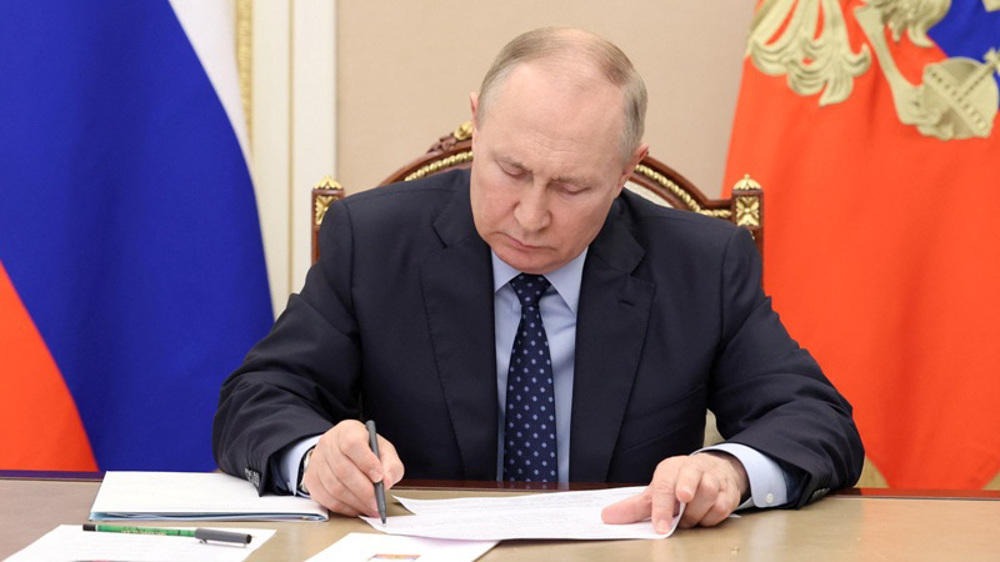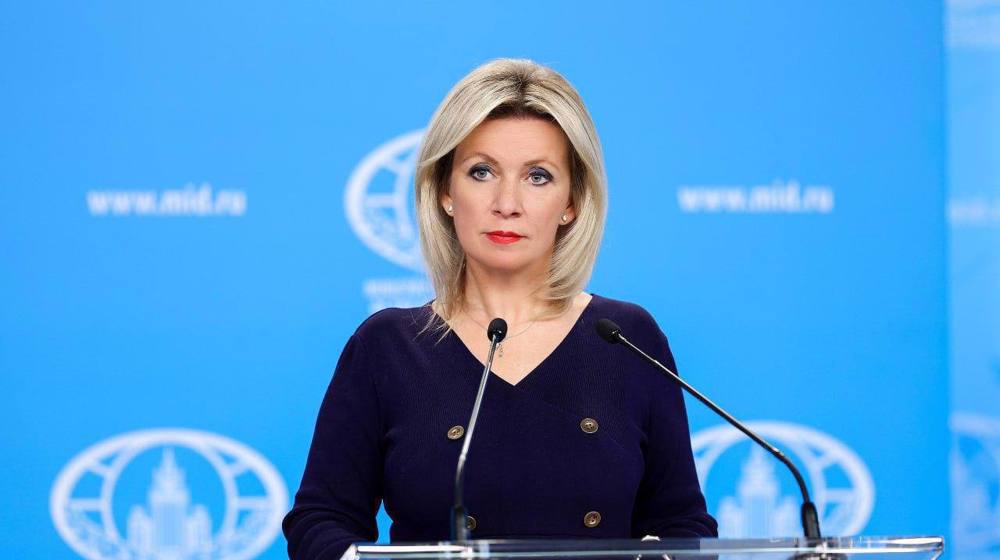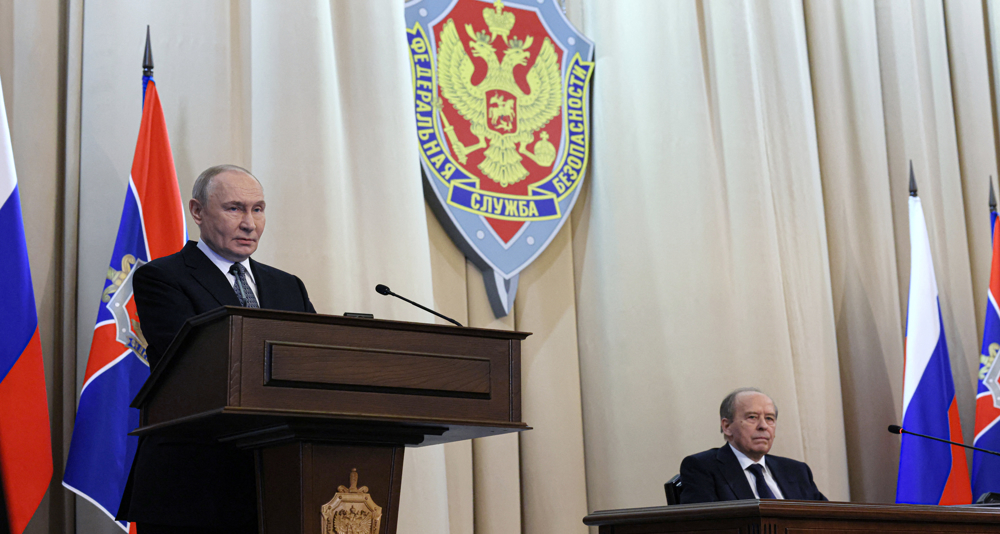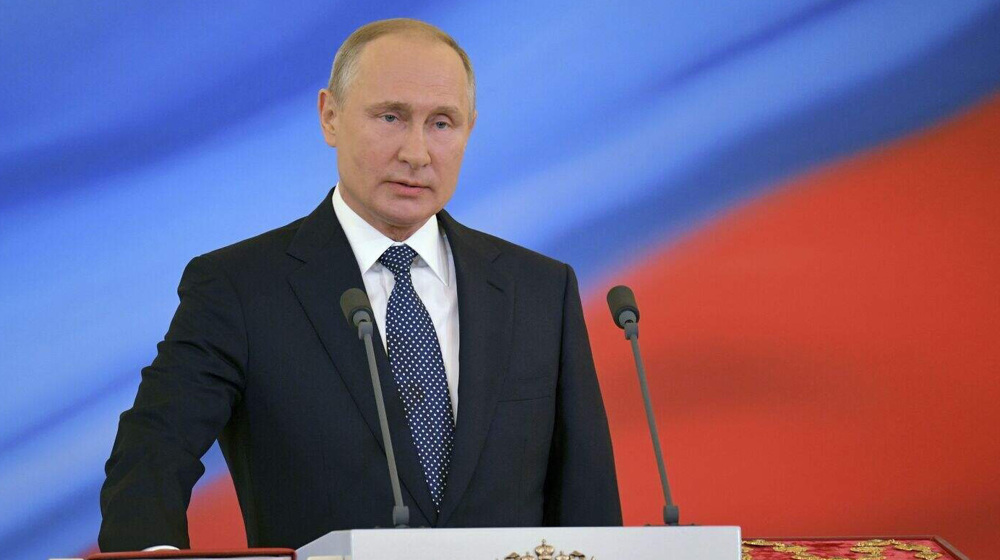Putin approves record defense budget for 2025 as EU officials visit Ukraine
Russian President Vladimir Putin has signed off on the defense budget for 2025, raising the military spending to record levels, as top officials from the European Union visit Ukraine.
Putin signed Russia's new record-breaking budget on Sunday, allocating $126 billion (13.5 trillion rubles) to national defense - 32.5 percent of government spending – up $28 billion (3 trillion rubles), or about four percent, from this year's military budget.
The new three-year budget predicts a slight decrease in military spending for 2026 and 2027, and has already been approved by lawmakers in both houses of the Russian parliament - the State Duma and Federation Council - in the past 10 days.
Launched in February 2022, Russia's full-scale military operation against Ukraine, which is considered to be Europe's largest conflict since World War II, has strained both sides. Kiev has received billions in Western aid, particularly from the United States, but Russia's larger, better-equipped forces have recently pushed Ukrainian troops back in the east.
Separately on Sunday, the new presidents of the European Council and EU foreign policy, Antonio Costa, and Kaja Kallas respectively, arrived in Kiev, offering strong support for Ukraine as doubts grow over what the ex-Soviet republic can expect from a new US administration under incoming Donald Trump, who has been a vocal critic of the US’s current funding for Ukraine.
“From day one of the war, the EU has stood by the side of Ukraine. From day one of our mandate, we are reaffirming our unwavering support to the Ukrainian people,” Costa said on X.
At a joint press conference with Ukrainian President Volodymyr Zelensky, Costa reaffirmed the EU's commitment to back Ukraine through the war, including €4.2 billion ($4.4 billion) aimed at supporting Ukraine’s budget and €1.5 billion ($1.6 billion) in monthly aid from frozen Russian assets.
The European block would “stand for Ukraine as long as necessary,” stressed Costa, when asked whether the EU would increase funding if Trump withdrew support.
Russia formally annexed Ukraine’s Donetsk, Luhansk, Kherson, and Zaporizhzhia regions in September 2022, following referendums held in those areas, a move strongly condemned by Kiev and its Western allies.
Trump has repeatedly said that he would quickly end the Russia-Ukraine war as soon as he assumes power in the White House, raising concerns in Kiev that such a resolution could mean losing territory already annexed by Russia.
Zelensky said on Sunday that any future ceasefire talks with Russia must include EU and NATO representatives, as Ukraine sees its security tied to both alliances, but he expressed uncertainty about what such negotiations would aim to achieve.
Ukraine would “never legally recognize any occupation of our lands by the Russian Federation,” he stressed.
Zelensky also called on the outgoing Joe Biden administration to use the remaining two months in office to exert influence “over those few European skeptics about our future."
"I see nothing, I personally see no risks, and most NATO countries see no risks from the recommendation regarding the positive future of Ukraine’s membership in NATO," he added.
Since the war started, Western countries have been backing Zelensky with vast diplomatic and financial support, providing Kiev forces with huge shipments of arms and munitions despite repeated warnings by the Kremlin that pursuing such a policy would only prolong the war.
VIDEO | Rome residents demand end to ties with Israeli firms
VIDEO | Pakistan Senate condemns ‘hexagon of alliances’ as Indian PM visits Israel
VIDEO | Founder of French pro-Palestine NGO appears before court
VIDEO | Modi’s Israel visit sparks opposition, domestic backlash
VIDEO | Continuous war on media in occupied West Bank
Kabul rocked by explosions as Pakistan launches airstrikes
Iran Armed Forces warn US of severe consequences for any aggression
VIDEO | Iran, US move ‘closer to agreement’ after ‘serious, longest’ round of talks: FM











 This makes it easy to access the Press TV website
This makes it easy to access the Press TV website